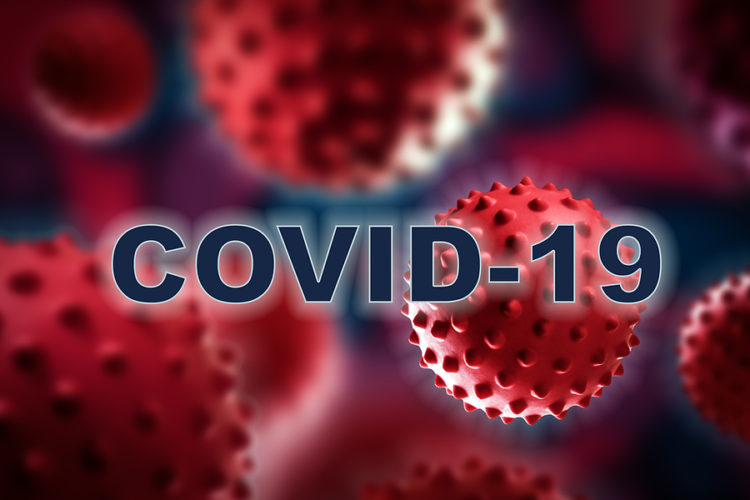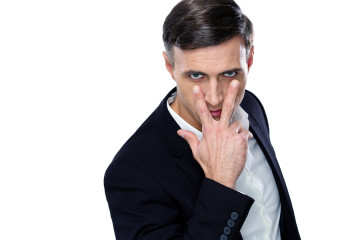psychosocial impacts of covid-19

by Bunny Tawanda Chigudu August 7, 2021
What caused the Covid-19 pandemic? What are the challenges experienced during and after (if it ends)? When and how is it going to end? These questions are raised everyday and everyone seems to have different answers. Every answer is infused with a political, religious and emotional charge. The Covid-19 pandemic has inspired controversy and indeed evoked a global fear. Many countries, territories have imposed lockdowns encouraging citizens to self-isolate at home while maintaining physical distance in public to curtail the spread of the disease.
The measures include compulsory or recommended confinement, curfews and quarantines. While these restrictions are effective as so far proven, the problems they are creating cannot go unnoticed. Some of the measures put forth relinquished immense authority to governments to undermine people’s rights. Successful lockdowns require a strong social contract with the citizens.
Psychologically and socially, the catastrophic virus has created within individuals, families, communities and nations a sense of insecurity and impotence. The pandemic is itself a traumatizing event, a stressor that has left many distressed or emotionally damaged. This pandemic has profound impacts on humanity. Covid-19 unleashed untold suffering, swallowing even the innocent. It is one of the major psychosocial catastrophes experienced in human history since World War 2. It is a complex emergency, an accidental harm that is causing traumatic experiences. The global calamity brought with it mental suffrage. The probability of psychosocial disorders increase with increased uncertainties pertaining to its containment.
Traumatizing experiences of lockdown, forced isolation and police brutality have a negative effect on people’s immediate environment especially in our modern “disciplinary society “. The traumatized may suffer from a wide range of disorders such as conduct disorders. Psychologically, persons under investigation (PUI) in suspected cases of infection are affected. The ones placed under coerced quarantine suffer from separation anxiety and fear. Moreover, persons with damaged selves are more susceptible to psychological distress. Many are going through eyewitness trauma where thinking and feeling are altered by the events taking place. People who have a history of exposure to previous psychic trauma, those who witnessed violence and death easily breakdown. To support this, enforced restrictions by armed soldiers and police, who are often accused by rights groups of using excessive force especially in poor neighborhoods, can trigger re-experiences of eyewitness trauma experienced during political crises and post-election violence in most African states. The heavy presence of armed law enforcement agents in the streets drives people into a panic mode. There are reports here in Zimbabwe where the police forces have clashed with people accused of flouting lockdown restrictions in scenes decried by some as excessive and detestable. In South Africa, videos circulated on social media showed security forces intimidating and forcing civilians to squat and roll on the ground for allegedly violating lockdown. In Kenya, there was fury and tensions flared over police brutality amid coronavirus curfew. The implementation of curfews was widely criticized. It was reported that in Kenya, the death toll from curfew enforcement had already exceeded the coronavirus death toll of one by March 27. In Rwanda, tensions boiled over, the police shot dead people. Elsewhere, the Philippines President Rodrigo Duerte announced emphatically that those who will flout the restrictions would be shot at. French President Emmanuel Macron reiterated that his soldiers are trained to subdue enemies of the state and to kill. He warned would be demonstrators amid the country’s lockdown. All these documented incidents have renewed anger over police brutality, breakdown of mutual trust and respect between law enforcement and community members.
The systemic political management of the virus becomes more lethal than the biological threat posed by the virus itself. Scholars like Foucault and Orwell realised that in the state of emergency, whether it is war, plague, natural disaster, discipline and order are easier to obtain for the ruling elite. The power of political officials is at its greatest, its most unrestrained, in a state of emergency. To elaborate, the Covid-19 crisis is being exploited by governments to pass undemocratic legislation and exert stronger social control over the populations.
The novelty of being locked down has affected us emotionally. We have become uncertain of how the world will look like when it is over, or when it will be. We are suffering from some form of grief individually as well as collectively. In the words of Melanie Verwoerd, former ANC MP and SA Ambassador to Ireland, “…it is destroying our sense of safety and this causes us to feel anticipatory grief on a scale never felt before“. David Kessier points out that we are most prone at the moment to what he calls ‘anticipatory grief`. We are grieving because we fear economic uncertainty, people are dying and we do not know if it will happen to us. What is happening in society today is societal stress, which is characterized by the fact that it is affecting many people simultaneously. Stress is a natural and inescapable accompaniment of living but its effects are deleterious. Stress ultimately becomes biological. Physically, worried and anxious persons develop lowered bodily resistance to infection thus making them more vulnerable to coronavirus infection. A stressed individual gets colds, sinusitis and sore throats. A vicious cycle may set in, that is, the more run down she/he becomes, the less vitality she/he can bring to bear on psychological problems. The more these problems mount, the greater the toll on physical health.
The pandemic has turned people into psychological casualties. By definition, psychological casualties are individuals who have been so overwhelmed by their circumstances that they no longer function in everyday life within the parameters and constraints laid down by their own communities. This inability to function may manifest itself in many forms. This is quite evident as we have seen and heard reports of people protesting against their lot by acting out and becoming anti-social. In retaliation to alleged police brutality, some resorted to vigilante activity. Chaos reigns supreme in supermarkets and liquor stores as people are up in arms with anti-riot police summoned to disperse huge crowds queuing up for scarce commodities. The law enforcement agents have become external enemies against whom to rage. The police have become so brutally unfriendly that for them it is difficult than meets the eye to separate friend from foe. Food insecurities and continued suffering as workers have been laid off from work will force some people to act against their principles in order to survive and to protect their families. Families and communities lurking on the peripheries of the economic spectrum bear the brunt the most. People in overcrowded settlements are flouting the social distancing rules for lack of sanitary provisions and basic amenities such as water. In high-density suburbs, residents in desperate need of water queue up around boreholes and there have been allegations of sexual abuse (sextortion) and discrimination at these water points.
The lockdown has also affected divorced families. For example, visitation rights of children of divorced parents have been made complex. Parents who share custody of children are affected and discouraged from transporting children unless it is for medical reasons. In South Africa, the government called on parents to keep their children in one place during the lockdown period. During these placements, dependence and rivalry with other siblings may contribute to their breakdown. With the extension of the lockdown, their presence becomes increasingly irksome and a burden to some step-parents who are unwilling and unable to bear the financial burden. The children are treated as the other, servants and made to wait on and run errands for the other children in the home. For children in authoritarian families, the school was a safety valve of escapism from their misery and fetters that bind them to perpetual servitude. The family, which was unable to provide an environment protective enough to consolidate a sense of self, is certainly not protective now. It would seem a large number of individuals are socially inept. Many children manifest psychological distress. However, this distress may be short-lived and not necessarily damaging. If resources, which facilitate mastery and a sense of self-efficacy, are made available to them, this too facilitates coping.
Covid-19 has triggered an education crisis that is unprecedented in scope, duration and impact. Prolonged school closures are grim as they increase child exploitation, child abuse, teen pregnancies among other problems. According to the United Nations( UN), the global school closures in response to the Covid-19 pandemic present an unprecedented risk to children’s education, protection and well being. Children have been robbed of their fundamental rights. It makes it even harder for the most vulnerable children to return to school. Across Eastern and Southern Africa, up to 16 million children are no longer accessing critical daily meals at school, violence at home is increasing (UN). In response, the United Nations Children’s Fund (UNICEF) announced advanced support during the unprecedented education crisis, while advocating for the safe reopening of schools that adhere to safety guidelines. Furthermore according to UNICEF, in most parts of the world, learning at home has been supported by online tools. However, in Eastern and Southern Africa, internet penetration is constrained. Barely one in five (22%) of households have internet access, while 84% of the rural population, where the bulk of the learners reside, have no electricity. There is substantial evidence of the digital divide , that is, uneven access to technology along race, class, and geographic lines. The most affected are the marginalized, vulnerable children who largely rely on schools for their education, health, safety and nutrition.
While positively the lockdown has become a catalyst for sobriety, others are attempting to anaesthetize and insulate themselves from the lockdown psychic pain through substance abuse. Closer to home, the ban on sale of alcohol and cigarettes has been devastating mentally for South Africans. The ban causes desperation in people and could be a fatal health scare amid the country’s fight against Covid-19. There have been reports that desperate imbibers inject themselves with hand sanitizer liquid directly into their veins to get a quick fix, revealed Dr Gerhard Verdoorn from the Griffon Poison Information centre. Medical experts have warned against the use of hand sanitizers as it could be fatal and result in the damage of the brain, heart, and immune system. Other experts have also noted that for people who are addicted, the side effects of abrupt alcohol withdrawal can induce tremors, insomnia and nausea. This could have serious complications; especially if the person is confined at home (think of marital feuds, GBV, child abuse and neglect). Also for moderate alcohol consumers, closure of liquor stores has led to increased anxiety and stress. Other people are unable to block out their pain and become so overwhelmed that their social life is disrupted by psychosomatic symptomatology, anxiety and depression. Psychosomatic symptoms include among others headaches and sleeplessness. People have become overly anxious and agitated. Despair, disillusionment, anger and resentment are the predominant emotions.
The future is uncertain on many experiencing a myriad of disturbing psychological problems particularly those from a large pool of unemployed youth, many of whom are university graduates frustrated with decades of extreme poverty, underdevelopment, and the lack of job opportunities. On a wider geographical scale, countries in Sub-Saharan Africa are viewed as the most stressful in the world due to their socio-economic and political quagmires. The Covid-19 pandemic has become a powerful contributor to add to the already existing legacies of psycho-social cripples that are still to be tackled. Following the height of the pandemic, foreign nationalities who are repatriated to their mother countries where they had previously fled for different reasons among them political persecution and economic turmoil, suffer more mental health and adjustment problems. This is the case with most Zimbabwean nationals who had fled the country and sought refuge in countries like South Africa , Botswana, UK ,China to name a few. Socio-ecological factors compounded by the pandemic thus contribute to mental health outcome in the aftermath of trauma.
Several commendable efforts are being rolled out to help the homeless and the disabled persons from the scourge of coronavirus. However, the exaggerated preferential treatment given to the disabled only justifies the stereotypical views of them as people who are not ‘normal` and incapable. Some politicians have braced to this opportunity to settle their cheap political scores and antics. While the pandemic has brought a sense of unity in finding a common purpose to fight it, it has also brutally reminded us of the fundamental faulty lines in our society, in particular inequality, poverty, unemployment and a lack of social justice. Because of corruption, even before the pandemic, there is increasingly little funding available for desperately needed public services such as health care, education, sanitation and housing.
While it was a humanitarian gesture to release prisoners to contain coronavirus and to decongest prison facilities, the congestion on public resources and social welfare provisions are yet to unfold. In my own view, the influx of offenders in jail cells and behind prison walls is a sign of social decay and poor informal controlling mechanisms. The question is why are people committing more crimes no matter how much they are aware of social norms, rules and values, which govern our behavior? The moral compass of society is skewed. The social fabric is hanging with a thread. Paradoxically, to pardon the criminal is to compound the social problem which we are seeking to address because once the ex-convict is free, she/he will resort to secondary deviance resulting from a self-fulfilling prophecy as she/ he suffer rejection, despise, rebuke, and suspicion from members of society. It is a matter of life or death. The war is lost at both ends.
Other challenges being created by African governments responding to Covid-19 are misimformation and undercommunication on the impacts of the pandemic. Bad communication can bear the negative impact of the ability of nations to respond and deal with an impending disaster. African states are accused of window-dressing the true scale of the pandemic. Misinformation hampers the fight for the virus in Africa. By concealing vital information from the public, governments create situations whereby everyone is navigating blind except for the government towards the fight against the pandemic. Inequitable access to information between government and the people results in inequitable levels of commitment. According to Dr Ralph Mathekga, a renowned South African political analyst, honesty is key in managing the pandemic and it is a missing link in our politics in general.
All these and other challenges posed by the pandemic have had an enormous impact on the psyche of our society and are increasing the difficulty of dealing with social behavior. The pandemic, whether induced erroneously through human activity as alleged or a product of natural design and superstitious inclinations , will leave a gigantic stamp not only on the psyche but also on the communities and their social organization. Perceived social support reduces the probability of psychosocial disorders, as do feelings of safety and perceptions of moral and social order. Families and communities ought to bring people together to share their experiences to help them cope in the aftermath of this tragedy. With this global calamity in our midst, psychosocial intervention during and after the pandemic abates, is pertinent.
Bunny Tawanda Chigudu is a graduate in Bsc Sociology, (Great Zimbabwe University,2009), Msc C.F.S,( Africa University,2016). The writer writes in his own personal capacity. Email feedback to bunnychigudu1@gmail.com
Contact/whatsapp +263719208115, +263783208115.







No Comment